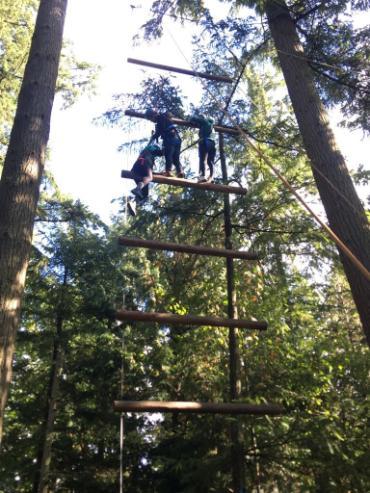Here in the Albers School of Business and Economics, we take the concept of building successful teams very seriously. This activity is so important to faculty that the Professional MBA program requires students to participate in a weekend-long “Outdoor Experiential Learning Retreat” with their first-year cohort. The retreat demonstrates firsthand the importance (and challenges) of successful team building. In this immersive environment students quickly learn the value of working together for shared goals and the importance of relying on others. The expectation is that students will become equipped with the necessary attitudes to replicate these skills in their professional lives.
According to Professor Bill Weis—the faculty catalyst behind the experiential requirement—one way to encourage successful leadership among teams revolves around the idea of expressing “need” among group members.
Professor Weis asserts that when a leader acknowledges and communicates the need of his or her fellow teammates to help solve a shared problem, these leaders are often able to motivate team members to “step up to the plate” and eclipse their preconceived notions of their abilities. This is an important foundation that encourages team members to “show up” when completing a task. Throughout my experiences on the retreat, I learned that the first step toward building trust among my teammates was to recognize both that I needed their help and that they needed mine.
It quickly became apparent that the tasks on the retreat were impossible to complete without one another. The Giant’s Ladder (pictured above), for instance, could not be ascended individually; we all needed each other to build a climbing strategy and tackle the physical requirement of getting all members to the top.
This need, however, raises an important ethical question. We may have needed one another to complete the climb, but did we owe one another that support and assistance? In order to help our teammates, how much were we each expected to compromise on our own well-being—whether physically, by using our own bruised bodies as ladders, or emotionally, by supporting a teammate who was afraid of heights?
My teammates and I all expressed our need for each other on the Giant’s Ladder and, as a result, were able to ascend far higher than initially expected. But the question of how much support we were expected to give, in order to satisfy one another’s needs, is a much more complex question to address. The retreat raised the important question of how far we are required to go out of our way in order to support those around us, even when we share a common goal.
Though it’s easy to recognize that all of us felt some sort of need to support one another throughout our weekend together, I still have yet to come to terms with whether or not we owed this support to each other—and what moral obligations would have motivated us to act the way we did. But one thing I do know is that I look forward to exploring this topic further with my classmates as we continue in the MBA program to develop the relationships that we formed during the retreat.

